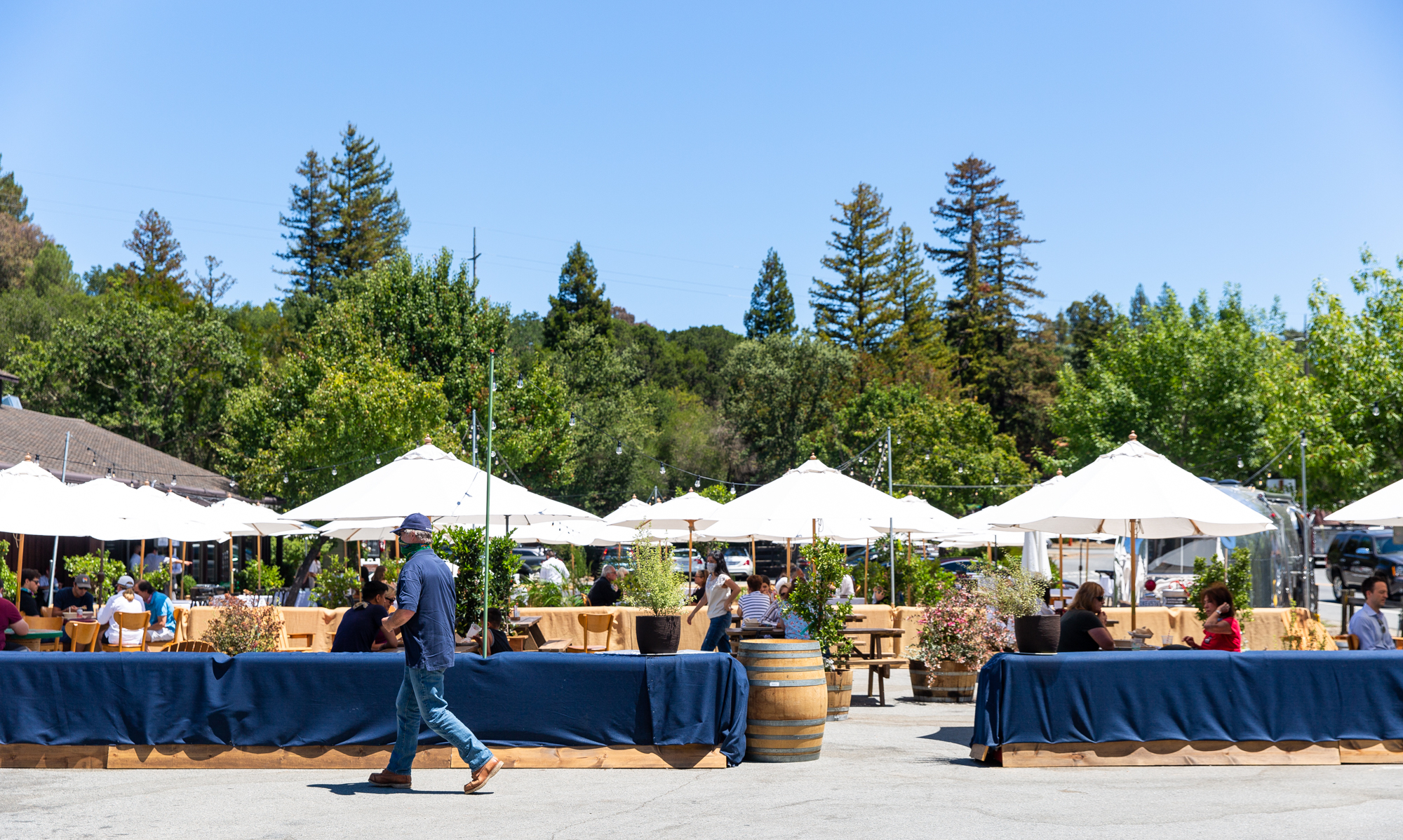Measure A, an initiative to allow two sites in the Town Center area of Woodside to be considered for outdoor community gathering spaces, has a slim, five-vote lead (50.1%) in the latest results released Friday, Nov. 12. Measure A requires a simple majority to pass.
The San Mateo County Elections Office reported Friday that 1,159 people voted yes on the measure, and 1,154 voted no, tightening the already close race which had a 20-vote difference on election night. The county has just 50 votes left to count for the only two measures on the ballot, Measure A and the Menlo Park City School District's Measure B, according to the county's website. Measure B, a parcel tax, is still leading by a comfortable margin.
As of Monday, Nov. 15, there are only seven challenged ballots remaining for Measure A, said Jim Irizarry, assistant chief elections officer for the county. Two are for having no signature and five are for "non-matching signature."
There are no other results to be released before the certification of election results, which is scheduled for Friday, Nov. 19, he said.
The last day to "cure" challenged ballots is Wednesday, Nov. 17. A challenged ballot is one with an issue that would prevent it from being counted, Irizarry said. Other than lateness, the vast majority of the time it's due to a signature that is missing or does not match county records, he said.
There is no provision in the California law for an automatic recount in any election, Irizarry said. Someone requesting a recount needs to file an application within five days of the certification of the election. The requester bears all costs of the recount if the results do not change, he said.
The recount process cost can vary depending on selections made by the requestor: whether it would be a machine or manual recount, the number of teams involved, and whether the requestor stops the process at any point, Izizarry said. The county estimates a full manual recount with two teams would cost require a day and a half to accomplish, for a total estimated cost of $6,000.
Measure A would amend current land use regulations that limit two residentially zoned pieces of land adjacent to the Town Center, a town-owned complex along Woodside Road from Whiskey Hill Road to Roberts Market that includes government buildings and commercial businesses, and Cañada Corners at the Cañada Road intersection (owned by Roberts Market). Because the rules were established by ballot measures J and 1 in 1988 and 1989, only voters can overturn the restrictions that limit future development on the sites.
The measure would allow the property behind Cañada Corners to be outfitted with surface parking to accommodate permanent outdoor dining, trails and play structures, all of which are now prohibited. It would also allow for the possible construction of a public building — an amphitheater or gazebo — for community events in the residentially zoned Town Center area on a portion of a 1.65-acre plot called Village Hill. Measure J, approved by the voters in 1988, prohibited development of commercial or office space on a then-vacant, town-owned parcel near where Town Hall is now located. It also required residential properties within and adjoining Town Center to remain in residential use unless commercial parking on those properties had been permitted prior to June 1, 1988.
Measure 1, approved by voters the following year, created an exception to Measure J's requirement that residential parcels in Town Center remain in residential use. Upon its approval by the voters, residentially zoned parcels in the Woodside Road Whiskey Hill Road Parking Assessment District were authorized to be improved to provide access, parking and open space — as shown in the 1989 Town Center site plan — so long as at least 50% of the residential parcels were maintained in open space. Approval of Measure 1 allowed the town to construct Town Hall parking and access improvements which now serve Town Hall, commercial businesses in the Town Center and the public.
Measure A's backers argued that its passage was necessary for outdoor dining to continue beyond the pandemic.
The Woodside Town Council's state of emergency ordinance allows the town to waive the restaurants' parking requirements that are part of a conditional use permit. Gov. Gavin Newsom issued an executive order last week that extends parts of his March 4, 2020 COVID-19 emergency proclamation through March 31, 2022. The town operates under the state umbrella.
The town must take action every 60 days to continue the state emergency on a local level, said Mayor Brian Dombkowski. Outdoor dining is likely to be extended (assuming the council continues to renew the 60-day resolutions) through March 2022, regardless of the outcome of Measure A.
When the emergency declaration ends, the town must once again enforce the parking requirements, he said.



Comments